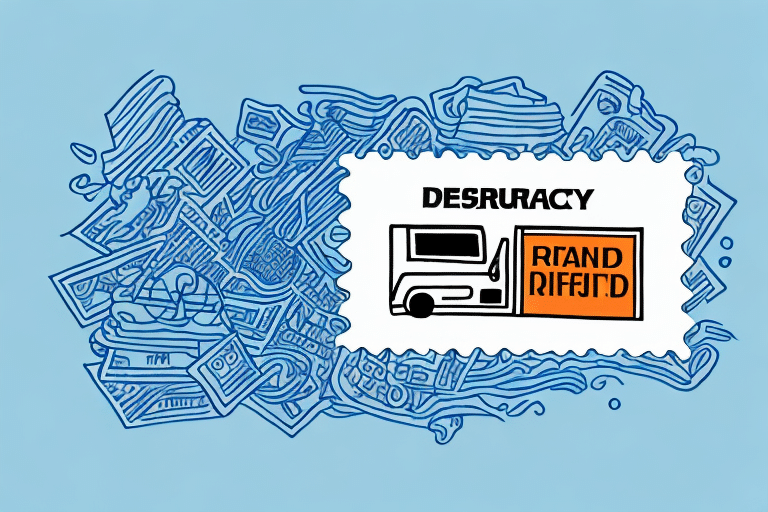What Is Insurance Restricted Delivery?
Insurance restricted delivery (IRD) is a specialized delivery option offered by some insurance policies, ensuring that a package or shipment is delivered exclusively to a designated individual or organization authorized to receive it. This service adds an extra layer of security, particularly beneficial for high-value or sensitive items, by preventing unauthorized access during transit.
Understanding the Concept of Restricted Delivery
In standard delivery methods, packages are typically left at the intended address without verifying the recipient's identity. This approach can pose risks such as theft, loss, or damage. Insurance restricted delivery mitigates these risks by requiring the delivery personnel to verify the recipient's identity before handing over the package.
How Restricted Delivery Enhances Security
With IRD, the policyholder specifies an authorized recipient who must present valid identification upon delivery. If the recipient is unavailable, the delivery driver will attempt redelivery or hold the package at a secure location for pickup, thereby reducing the chances of the package being misplaced or intercepted.
Insurance Policies Offering Restricted Delivery
Restricted delivery is commonly available as an add-on for insurance policies that cover valuable or fragile items. These typically include:
- Jewelry and precious metals
- Artwork and antiques
- High-end electronics like laptops and smartphones
- Medical and legal documents
By opting for IRD in these policies, individuals and businesses can ensure that their valuable shipments receive the highest level of protection during transit.
Advantages of Insurance Restricted Delivery
Choosing IRD offers several benefits:
- Enhanced Security: Ensures that only authorized individuals receive the package.
- Reduced Risk of Theft: Minimizes the likelihood of packages being stolen from doorsteps.
- Peace of Mind: Provides assurance that valuable or sensitive items are handled with care.
According to a study by American Express, package theft incidents have risen by over 30% in the past year, highlighting the importance of secure delivery options like IRD.
Considerations: Is It Right for You?
Deciding whether to use IRD depends on various factors:
- Value of Items: High-value or irreplaceable items benefit most from restricted delivery.
- Shipping Frequency: Regular shipments of valuable items may justify the additional cost.
- Destination Security: Areas with high crime rates may necessitate enhanced delivery security.
Restrictions and Limitations
While IRD offers significant advantages, it's essential to be aware of potential restrictions:
- Additional fees may apply, varying by insurance provider and policy.
- Not all carriers offer restricted delivery in every region.
- Some item types may be excluded from IRD coverage.
Always review your policy's terms and conditions to understand the specific limitations associated with IRD.
Managing Restricted Delivery Options
Adding or removing IRD from your insurance policy is typically straightforward:
- To Add IRD: Contact your insurance provider via their online portal or customer service hotline to request the addition of restricted delivery to your policy.
- To Remove IRD: Similarly, reach out to your provider to adjust your policy terms, which may result in changes to your premium.
Be mindful that adjustments to your IRD options can impact your insurance premiums and coverage details.
Maximizing Your Restricted Delivery Coverage
To fully leverage IRD, consider the following best practices:
- Choose Reliable Carriers: Opt for carriers with proven track records in secure deliveries.
- Proper Packaging: Ensure items are securely packed to prevent damage during transit.
- Clear Recipient Instructions: Provide detailed information about the authorized recipient to facilitate smooth deliveries.
- Utilize Tracking Services: Monitor your shipment in real-time to quickly address any delivery issues.
Handling Undelivered Packages
If your package isn’t delivered as per your IRD policy, take the following steps:
- Contact Your Insurance Provider: Report the issue immediately to initiate a claim or seek assistance.
- Inform the Carrier: Reach out to the delivery service to determine the package’s status.
- Document Everything: Keep records of all communications and relevant documents to support your claim.
According to the Insureon blog, timely reporting and thorough documentation significantly increase the chances of a successful claim resolution.
Conclusion
Insurance restricted delivery offers a valuable solution for safeguarding your shipments against unauthorized access, theft, and damage. By understanding its benefits, limitations, and implementation processes, you can make informed decisions to protect your valuable or sensitive items effectively.






















